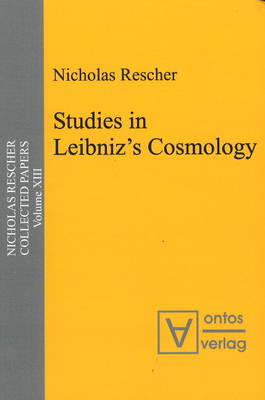Collected Papers
1 total work
Leibniz's optimalistic cosmology is one of the most controversial--and least appreciated--sectors of his philosophical system. How can contingency figure in a context where all truth is seen as analytic? Why should the best of possibilities be realized? And how can omni-necessitation be averted if an omni-benevolent deity must create the best possible world? Moreover, how can this supposedly best of possible worlds contain so much suffering and evil? Then too, how can there be a best, anyway, seeing that anything can be improved upon? And how can an imperfect creature of limited intelligence possibly hope to fathom such cosmic mysteries? All these questions convey objections to Leibnizian ideas that have been made repeatedly over many years. In actual fact, however, Leibniz anticipated them all. The aim of the present book is to lend plausibility to how he set about it.
